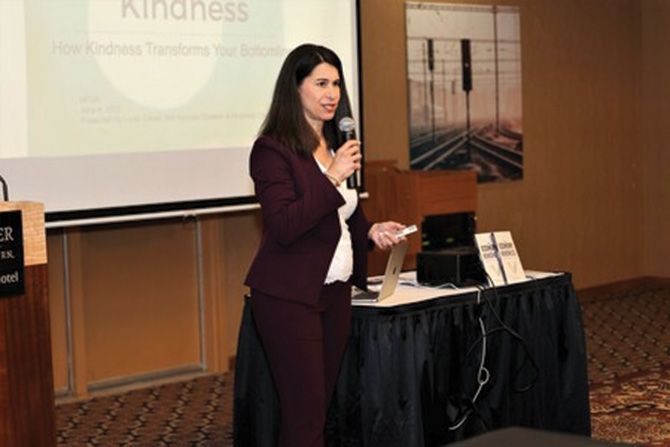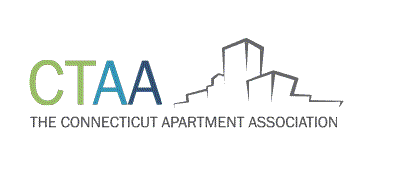
Linda Cohen, the founder of Linda Cohen Consulting, is a professional keynote speaker known as The Kindness Catalyst. A consultant since 2012, Linda has a blog on her website (https://lindacohenconsulting.com). She has written two books; 1,000 Mitzvahs in 2011 and The Economy of Kindness in 2021.
It seems clear that you’ve made kindness your life’s work. What is the story behind that?
My father called me in April 2006 after his terminal lung cancer diagnosis. He was a family therapist, and he had just turned 70. I was 38, with two young school-aged children. We had a difficult relationship, but I flew to Burlington, Vermont, and we started working to heal our relationship. He lived eight months after that call. Those months and the healing process were a gift. We both found peace; he died Dec. 1, 2006, on my son’s sixth birthday.
Five weeks later, I woke up in the middle of the night with the idea that I would do 1,000 mitzvahs (good deeds) in his honor. Completing them was transformative. When I was more than a year into the project, my rabbi suggested that I write a book about it.
I thought the project was just a personal experience to help me process my grief, but it changed my life. In 2011, I did a TED talk to share the idea of kindness with other people. My first audiences were nonprofit groups like Girl Scouts, houses of worship and schools. Eventually, I realized how important kindness is in the workplace and why kindness is so important to business leaders.
Kindness is important everywhere. Why did you choose to focus on kindness in the workplace?
I could see that there were real challenges in the country and the world. Rhetoric was more challenging, and conversations were becoming more divided. Since people spend so much of their day in the workforce, I started looking for good business cultures and organizations that focus on kindness because I wanted to see their results. Also, I started working to bring kindness to the workplace. My first paid opportunities were with local government, health care and long-term health care, and then credit unions. I have continued working with many of these industries.
Why does kindness improve the bottom line?
My three Rs are reputation, recruitment and retention. When an organization gets a reputation for being unkind, its customers and staff often leave. In contrast, organizations with good reputations have an easier time recruiting talent. The third R is retention. If you tell people that your culture is one way, you hire them, and they discover it’s not true, they will usually leave.
What is the easiest way to help business cultures turn toward kindness?
Start by listening. Some organizations listen to find out what is happening before they make changes. Schedule multiple sessions of active listening.
What’s the next step after the first one?
Implementing what you can. For example, a fairly small company had its employees working remotely in the spring of 2020. They couldn’t do their jobs because the schools were closed and their children were home.
Childcare is a huge challenge for most women. It should be everyone’s problem, but it falls mainly on women. The company solved the problem by temporarily making the headquarters into a school. Employees dropped off their children at the temporary school, then went home to work.
What are your favorite stories about kindness in the workplace that have inspired you?
I met a volunteer manager during the first six months of the pandemic. She coordinated 75 working hospice volunteers. April was the usual time to honor volunteers, but she couldn’t do a luncheon and provide recognition in the usual ways. Instead, she put together what she called a porch project. She got some cookies and mugs with the hospice logo, and then she and the other professionals in her organization drove over a large geographical area to thank the hospice volunteers by delivering the cookies and mugs to them. Everyone wore masks and stayed socially distanced, but they could see each other eye to eye.
I heard the second story when I spoke at a women’s leaders event for a major retail chain. I addressed 250 women, with only three men in the audience: the CEO and two vice presidents. They were working in the grocery market, and I asked them to share a time they had received kindness from a manager.
A woman raised her hand. A decade earlier, when she was in her 20s, she worked in a different state than her family and missed them very much. The manager called her in at Christmas and instructed her to buy a ticket the company would pay for, take a week and visit her family. That was a huge gift; you never get that holiday week off when you are in the retail business.
One of the three men in the room was the boss who made that Christmas trip possible. I got choked up, witnessing that. It reaffirmed the rippled effect and how long somebody might hold on to a remembered kindness. Most people don’t forget.
What is the most important lesson about kindness that you’ve learned?
I have three lessons, not one.
- The size of the kindness doesn’t necessarily matter.
- Kindness has a ripple effect. Even one act can make a difference.
- It is harder to receive kindness than it is to give kindness. Many people struggle with receiving, but when we receive kindness gracefully, we let them give us an important gift. Thank you is a complete sentence, and we should practice it regularly.
Do you have a story to share that you heard after a presentation?
In my book, I wrote about one gentleman who was in the senior living world before the pandemic. He was the franchise owner of a home care business. He wanted to recognize people in their work because he knew they were working with elderly adults.
This business owner would meet on Mondays at the beginning of the pandemic with front-line home-care workers. It was still unclear how contagious COVID was, so he made sure he knew what they needed and gave them hand sanitizer, lunch and water. Later, when the staff returned to the office, he had them work Fridays at home that summer, beginning in June 2021. He knew they could work remotely and get their job done.
He made people feel valued and appreciated.
Do you have other mentors who have helped you along the way?
When I began speaking professionally, I joined the National Speakers Association. Keynoters, trainers and consultants are all members who have helped me 100%. I wouldn’t be at my current level without their encouragement, and I have encouraged others, too.
What are some lessons you have learned from them?
A fellow speaker once said, “Curiosity didn’t kill the cat; comparison did.” Celebrate your wins before you start working on conquering the next mountain.
Also, build a bigger pie in your life. I try to live a life of abundance, not scarcity. Choose to live in a place of abundance. Tell yourself different work and a better client are coming when something doesn’t work out.
What do you want readers of this article to remember about you and your work when they finish reading it? What is the main takeaway?
I invite you to become a kindness catalyst, too.
Humanity wants more kindness, and we are disenfranchised without it. When people are surrounded by kindness in the workplace, they are healthier, happier, less stressed and less burned out. Real-life research in the last decade supports that conclusion, and more research is continuing to come out.
Linda lives in Portland, Oregon. She and her husband have two adult children and one Cavalier King Charles Spaniel. To learn more, please visit lindacohenconsulting.com.









